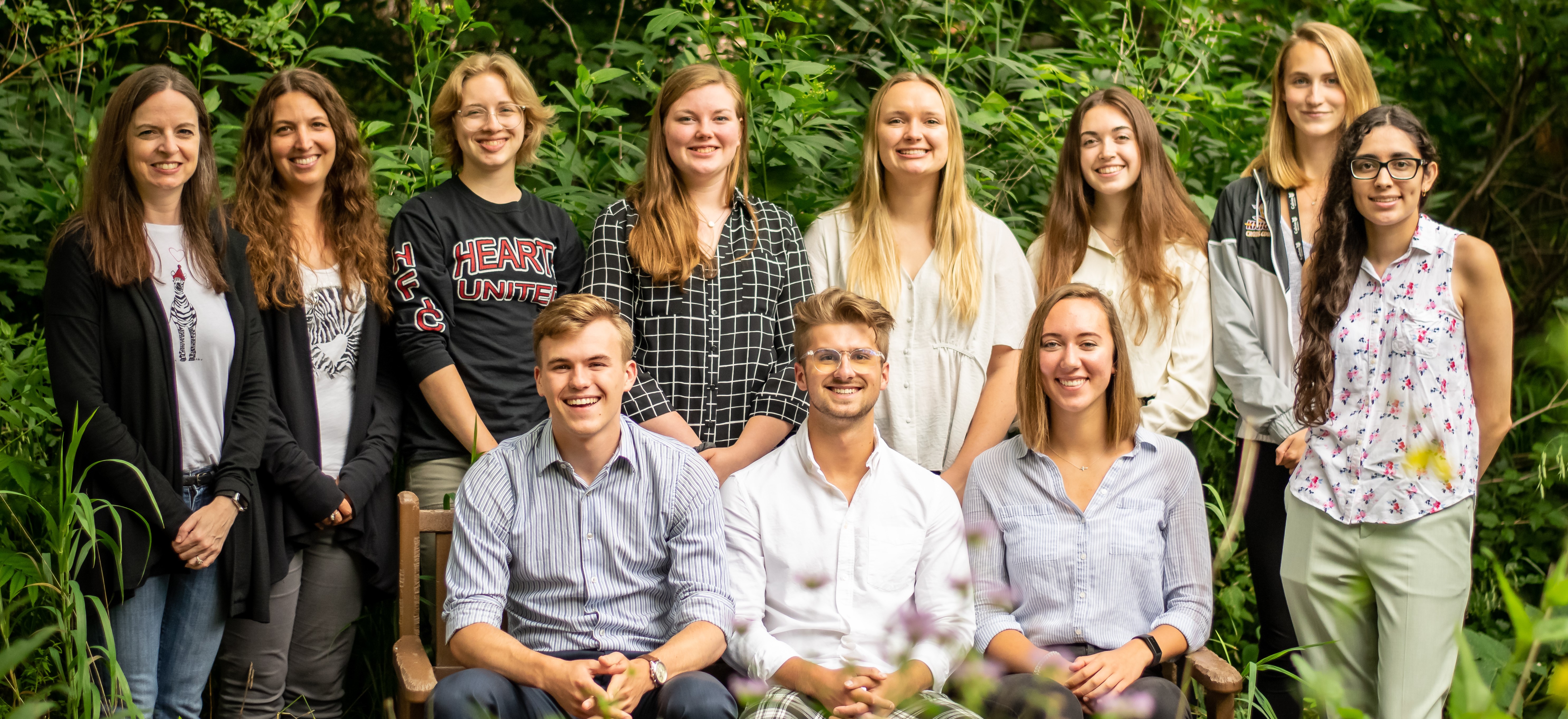
Meet the Rare Calvin team and hear more from some students who have been involved in rare disease research at Calvin University.
Current lab members
Kyrian Carley
Summer 2021 – present
Kyrian is a Biology major and Psychology minor who is pre-vet and hopes to go to vet school after graduation. She first worked on general research of BCS1L through bioinformatics, but has more recently been focusing on designing CRISPR/Cas-9 RNA and DNA sequences for future zebrafish models of BCS1L mutations, as well as researching and writing/editing protocols for CRISPR, zebrafish care, genotyping, and assays.
When asked why she wanted to study rare disease, Kyrian said, “Having a rare disease is actually way more common than one would expect, so rare disease research is not only important to understand these diseases and find treatments for those affected, but also to help the scientific research community further understand the human genome and the relationship between gene mutations and phenotypes and how to link them.”
Josh DeYoung
Summer 2021 – present
Josh is a Biochemistry major who plans to attend medical school and pursue a career as a physician. Josh worked in the zebrafish lab doing fish husbandry and CRIPSR-Cas9 injections, and also worked on MD simulations and bioinformatics analysis of BCS1L.
When asked why he wanted to study rare disease, Josh said, “Researching rare disease is important because it allows us to serve individuals with rare conditions who otherwise have no hope for treatment or chance at improving their quality of life.”
Sadie Heeringa
Summer 2021 – present
Sadie is a Chemistry (ACS) major who plans to go to grad school for organic chemistry or biochemistry. Stacy investigated heterozygous mutations in BCS1L using a yeast model and discovered insights about BSC1L's structure using molecular dynamics simulations. Sadie believes that rare disease research is important not only because rare diseases help us better understand biochemistry but also because every life is valued and cared for and so deserves the attention of research.
Brianna Jansen
Summer 2021 – present
Brianna is a biochemistry major is who is considering medical school and then the National Health Service Corps after graduation. She worked with others in the lab to set up and implmenet zebrafish protocols while compliling bioinformatic data to aid in predictions of pathogenicity on an individual residue basis.
When asked why rare disease research is important, Bri said: “The rare disease community often doesn't make the news; however, through research we can take steps to take a forgotten population and shed light while chasing answers.”
Valeria Lacroix
Summer 2021 – present
Valeria is a triple major in Biology, French, and Spanish who hopes to train to become a genetic counselor. She has been working on comparing protein sequences, investigating the pathogenicity of various mutation, and doing zebrafish care. Valeria believes her research is important to increase the knowledge, awareness, and medical care of rare diseases along with the people who they affect and their families.
Emma Pastoor
Summer 2021 – present
Emma is a Biology premed student who plans to go to medical school and become a medical geneticist. This summer she worked on a lot of bioinformatics to understand BCS1L more deeply and try to find a novel function or interaction. She also worked in the zebrafish lab taking care of the fish and using CRISPR to do a pigment knockout to create albino fish.
When asked why rare disease research is important, Emma said: "Rare disease research is important because there are so many people affected by rare diseases but there is typically less information known about them because of their rarity. Our research can bring more understanding and awareness of these rare diseases."
Daniel Sculley
Summer 2021 – present
Daniel is a Biochemistry and Psychology major who is planning to attend medical school after graduation. He helped to optimize zebrafish care, breeding, and microinjection while investigating BCS1L expression, targeting, and splicing using bioinformatic tools. Daniel believes that rare disease research is important as many rare conditions are underrepresented in the literature, creating barriers to proper diagnosis, prognosis, and treatment.
Ashley Meyer
Summer 2021 – present
Ashley is a double major in biochemistry and psychology who plans to attend medical school. She is researching the interactions between BCS1L and the Rieske protein using modeling, molecular dynamics simulations, and docking. Ashley notes that "Rare disease research is important because it helps us better understand the underlying causes of diseases that are often overlooked, bringing us closer to cures, treatments, and better outcomes for those with the diseases we study."







